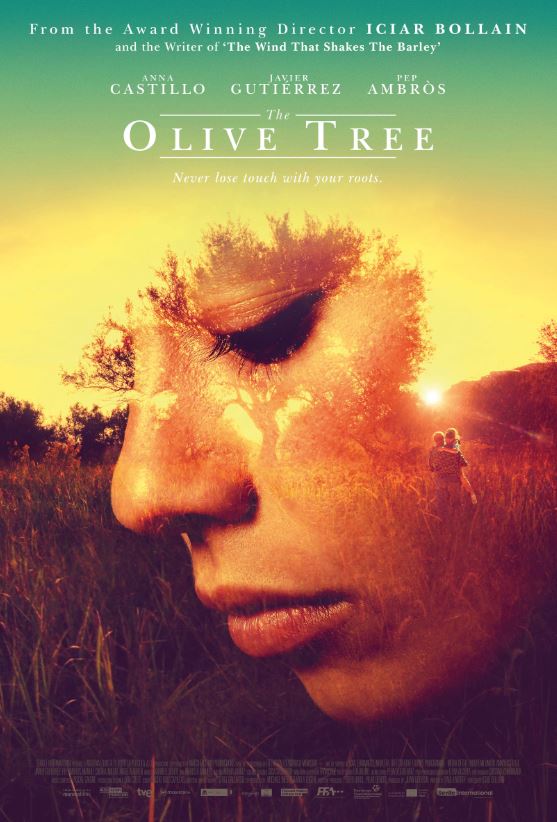Film Review | The Olive Tree Brings Social Realism to the Dreamy Spanish Countryside
The latest in a string of recession cinema – Hell or High Water, Money Monster, I, Daniel Blake – The Olive Tree focuses on young woman Alma (Anna Castillo), a person who shares a deep bond with her grandfather, Roman (Manuel Cucala). When she was a child, he gave her an appreciation for nature, teaching her how to take care of the family’s farm – something which has been passed down for generations. However, when Alma’s father sells his dad’s oldest and most prized olive tree to creditors, it causes a rift within the clan.

Years later, Roman is suffering from Alzheimer’s disease – forgetting more and more each day. However, Alma believes if she tracks down the olive tree and returns it to the family farm, it may spark something within the ailing man’s brain. Learning that the shrub is now located in the headquarters of a German energy company in Dusseldorf, she recruits her friend (Pep Ambros) and uncle (Javier Gutierrez) to help retrieve the tree.
Written by frequent Ken Loach collaborator Paul Laverty (I, Daniel Blake, Jimmy’s Hall), The Olive Tree has similarities to the British director’s output. Those who have problems with the auteur’s preachiness and tendency to include villainous stereotypes will find plenty to critique. For example, at one point, a wafer-thin humourless German character derides the protagonists – referring to them as “irritating clowns”.
However, The Olive Tree also features much of the things that make Loach (and Laverty) such a household name. The main characters are very likeable. Their interactions are natural and witty and witnessing them uniting to achieve a common and admirable goal, even if those that stand in their way are 2-D bad-guys, is undeniably pleasurable. Plus, while Loach prefers typically a muted style – emphasising the story rather than stylistics – here director Iciar Bollain makes the proceedings feel more cinematic. The Spanish countryside setting is so colourful, especially as the vast, overhead shots highlight it in all its grand beauty.
[arve url=”https://vimeo.com/165449332"]
Laverty’s use of symbolism, although occasionally heavy-handed, is clever in the way it reinforces the themes of the drama. Like in some his previous scripts, he critiques the coldness of faceless corporations. The energy company, who its pointed out on numerous occasions have negatively impacted on the environment during their extracting, use Ramon’s tree as their logo – an unsubtle but sharp attack on the hypocrisy and immoral behaviour of big business.
The Olive Tree suffers from a lack of edge though, particularly with its soft ending wrapping up much of the film’s conflict in the least complex way possible. However, it is diverting as one watches, proving a welcome breath of fresh air for Laverty following the intense and unforgiving I, Daniel Blake.
The Olive Tree is in cinemas from March 17th.
Featured Image Credit

